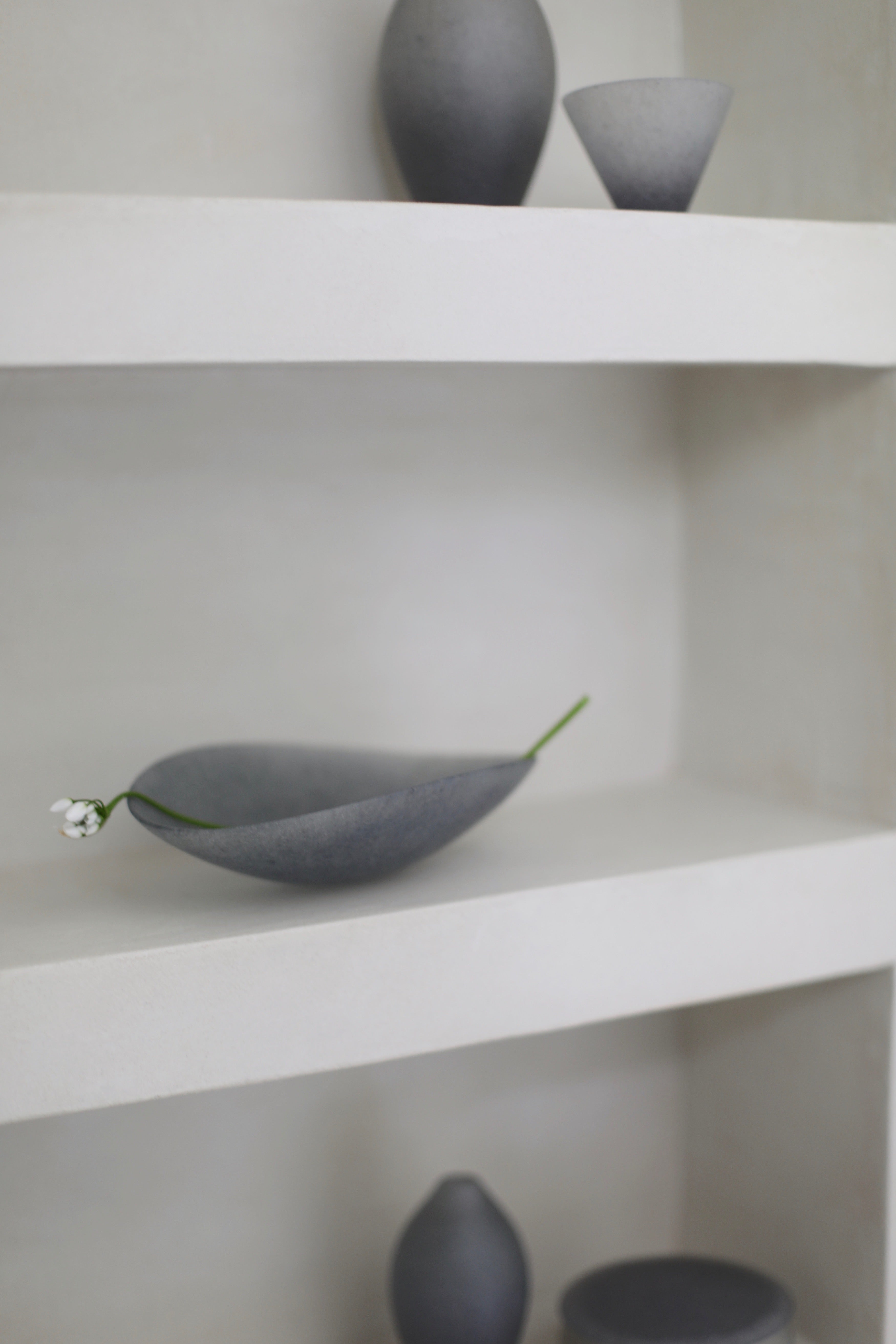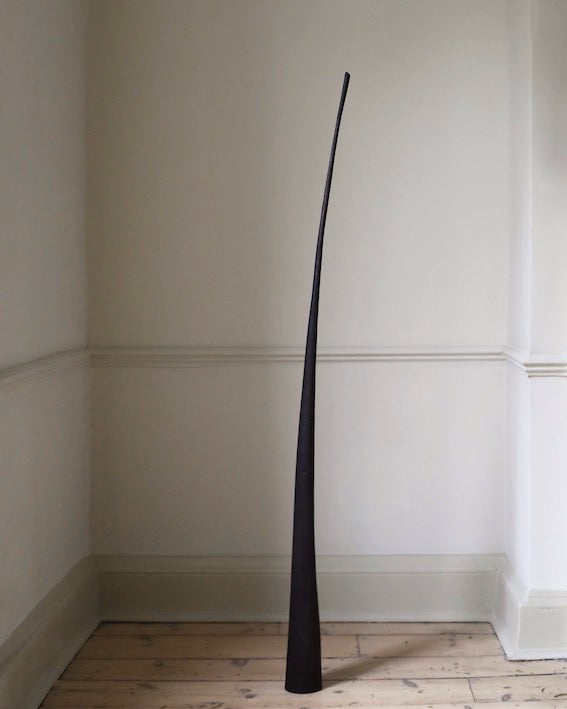
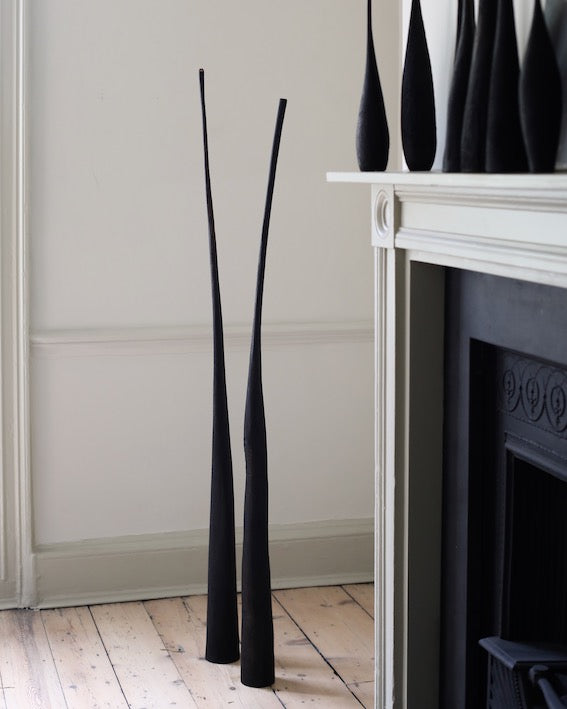
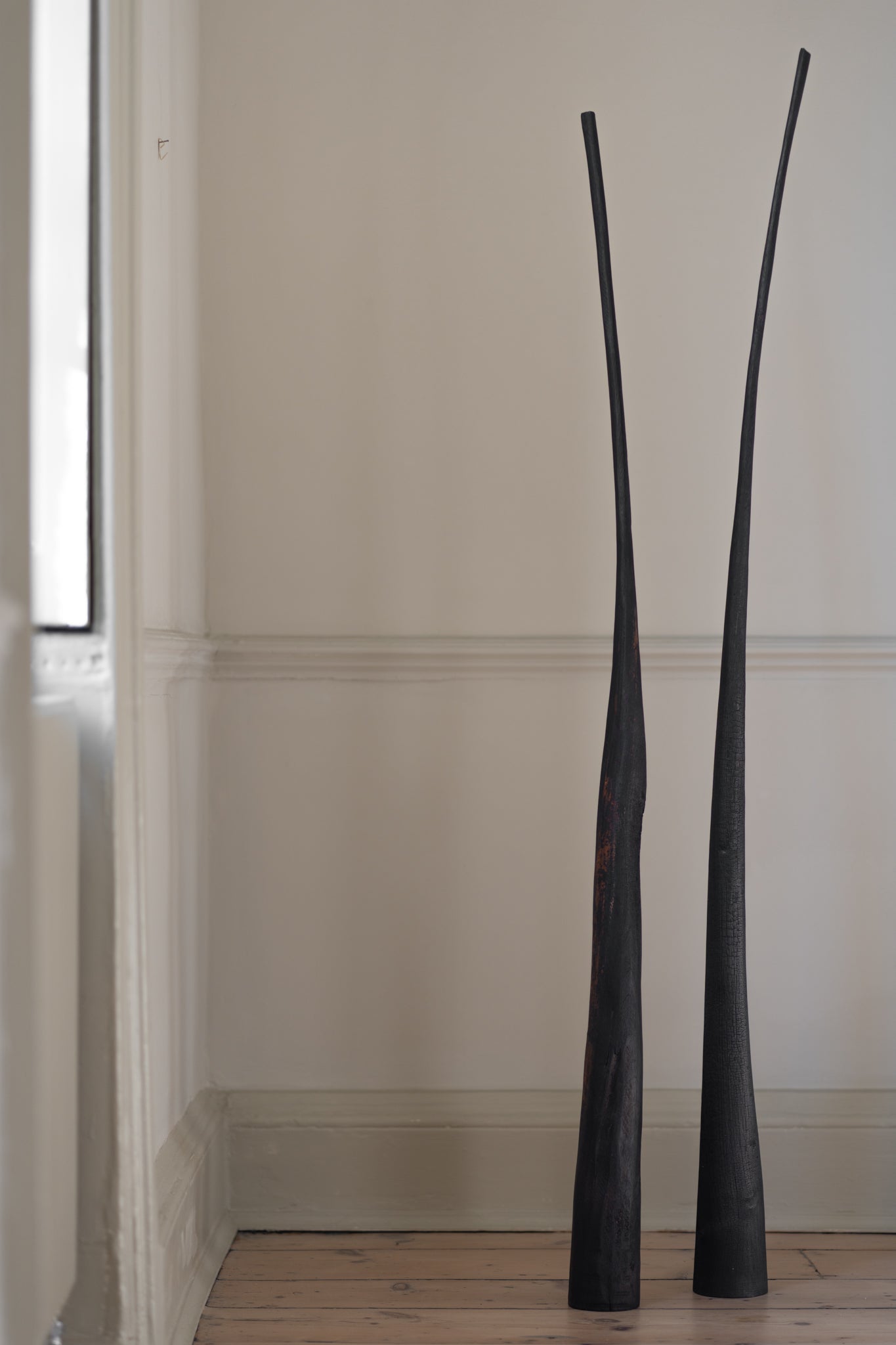
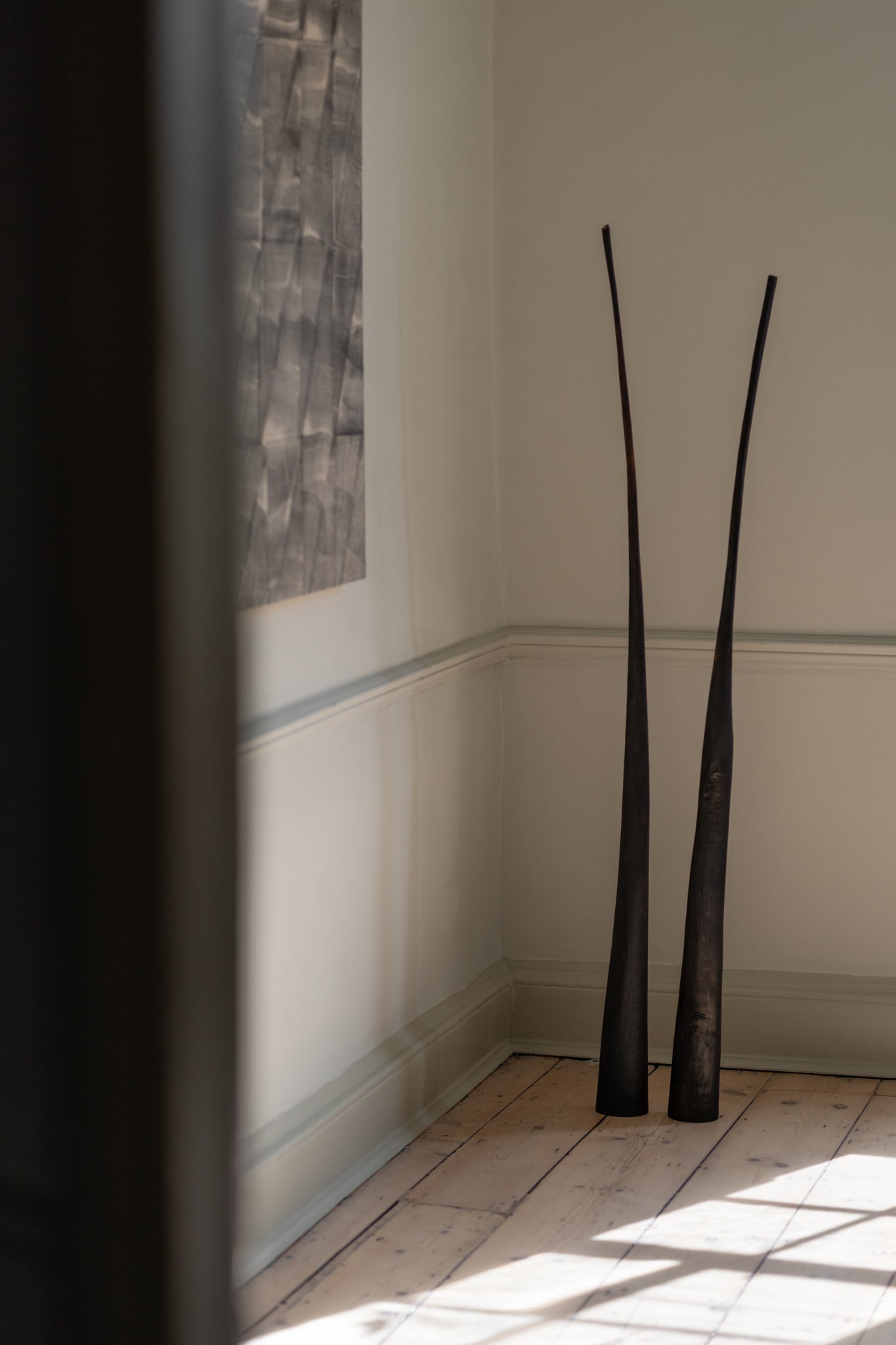
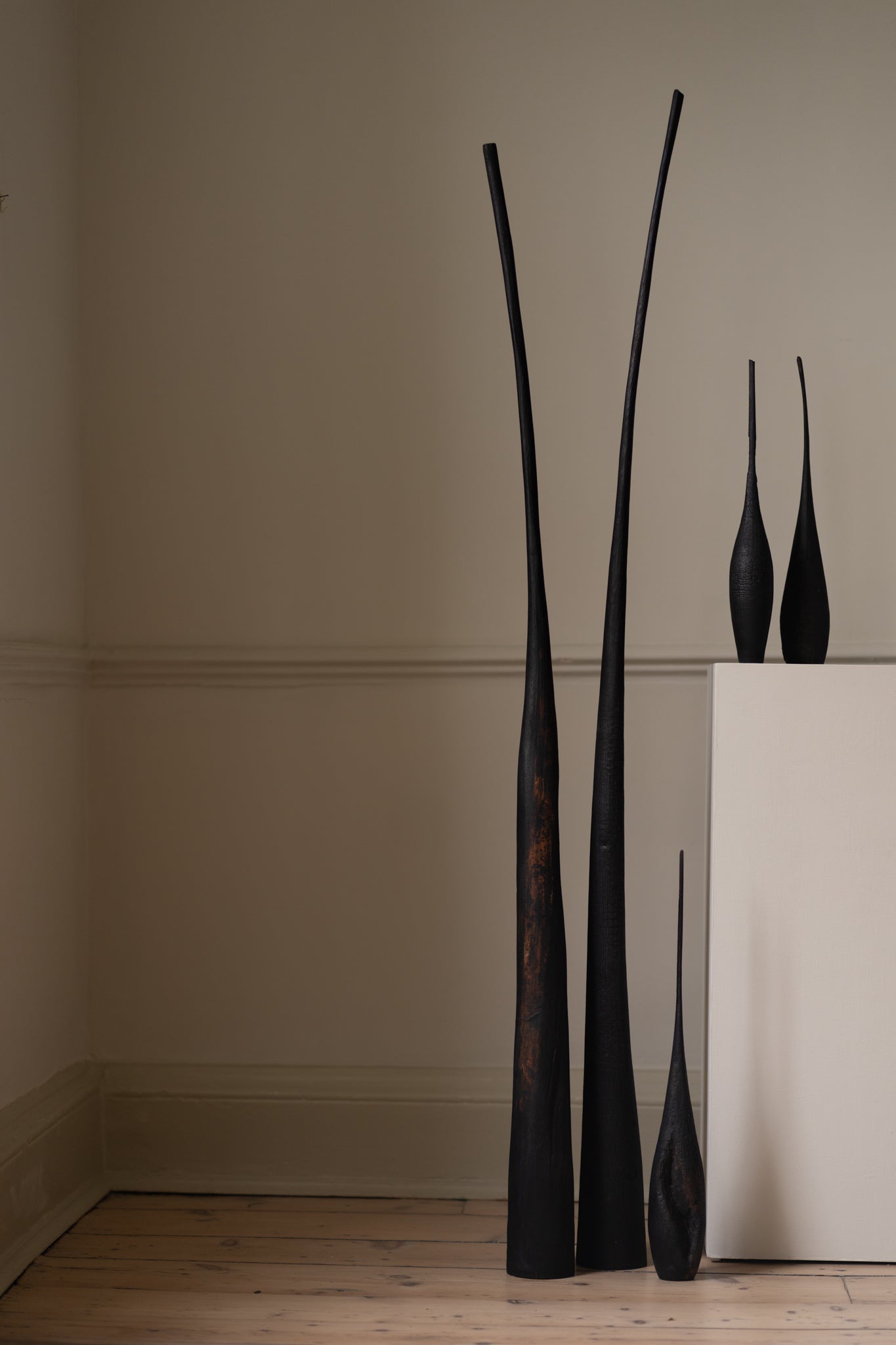
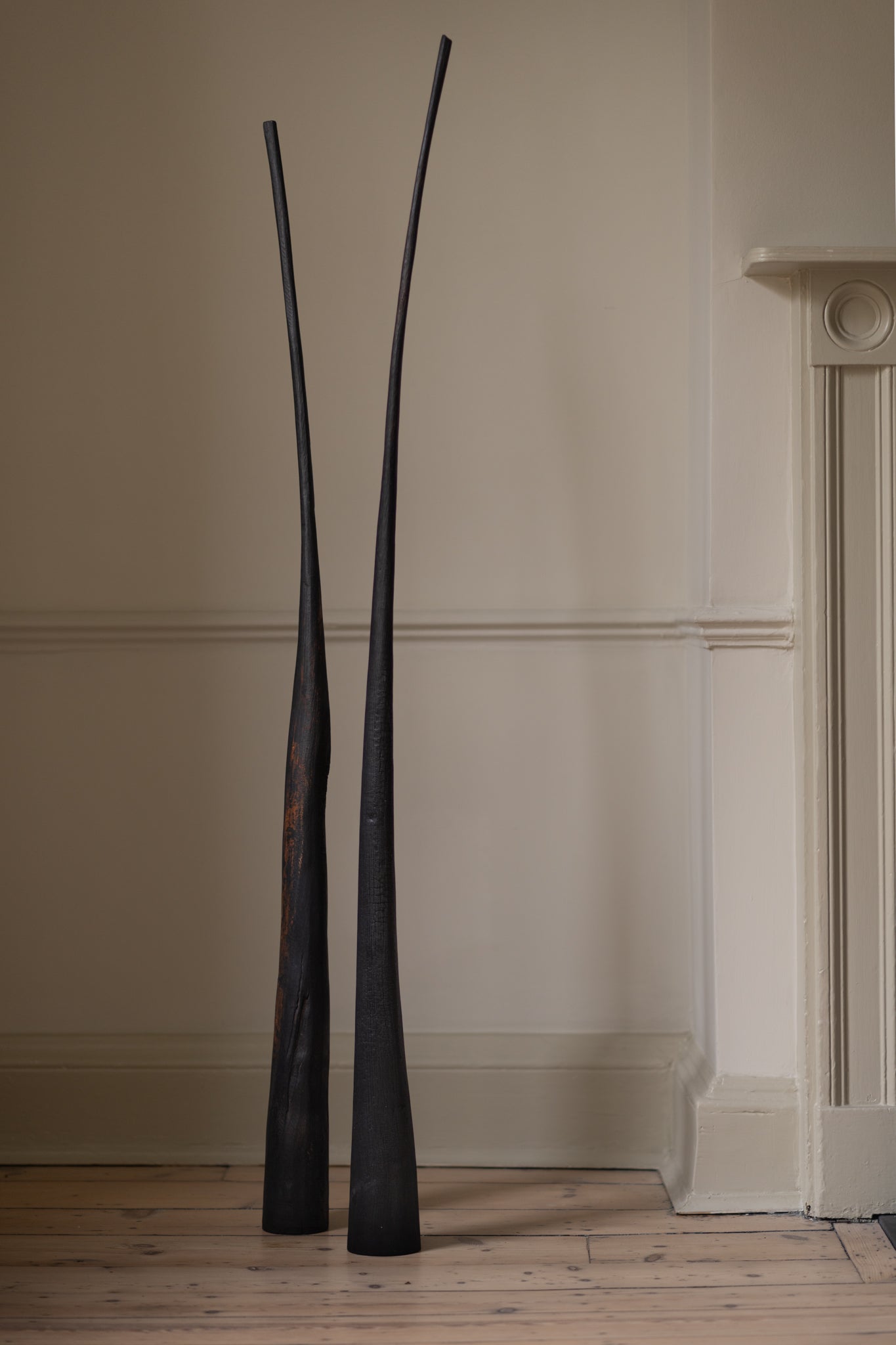
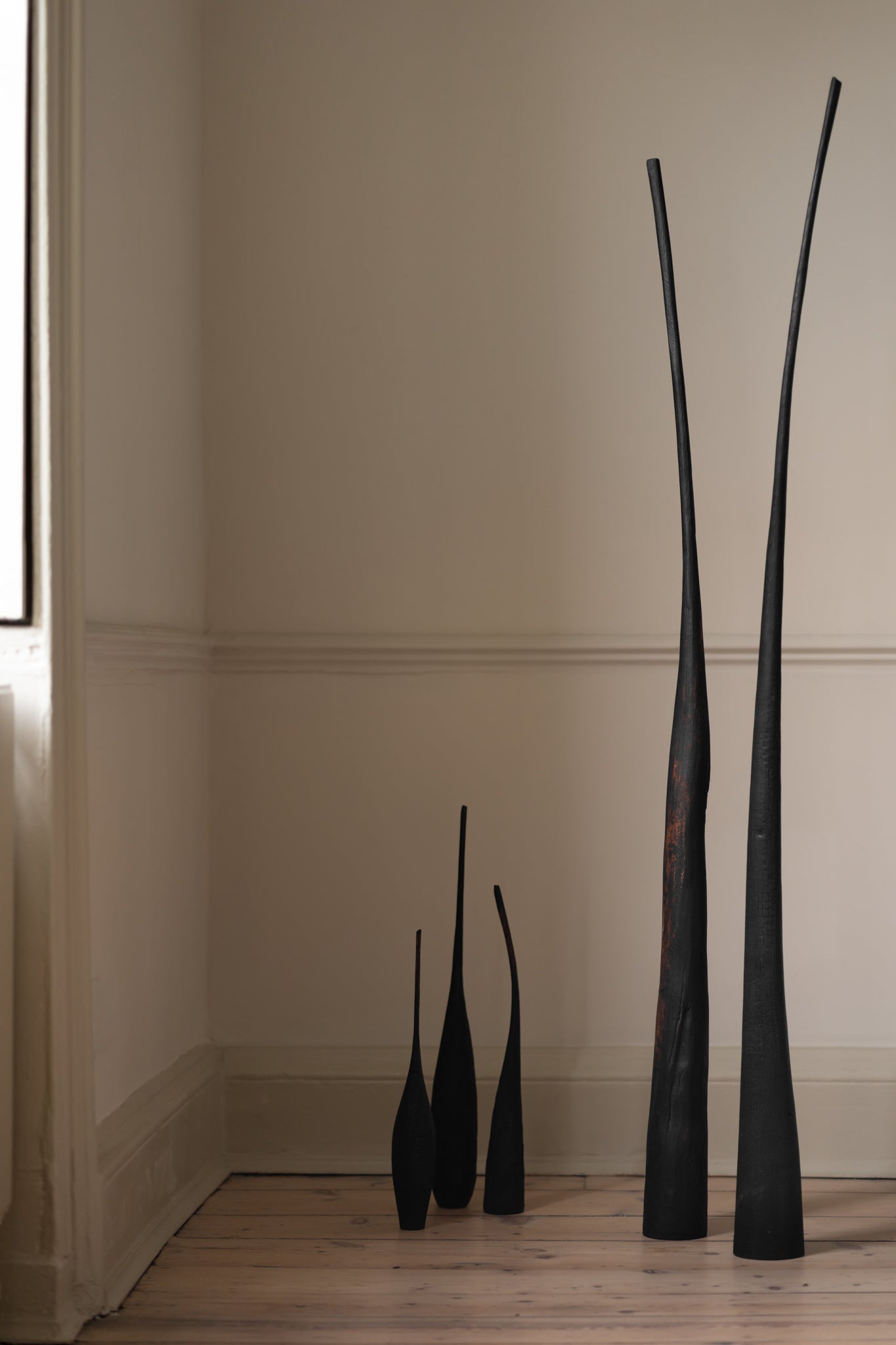
Marco Bellini 'Muluvenice' 18
Handmade in Italy
Dimensions: H 157cm x Ø 9.5cm
Materials: Locally sourced walnut wood
Method: Turned on a lathe and hand carved, the pieces are burnt using fire and compressed air. A compound with an iron base is then added and the pieces are finished using a combination of artist's fixatives, spray varnishes and beeswax and then left outside in the sun for at least 2-3 weeks
Care: To clean, dust lightly with a cotton cloth
Description
This conical wooden sculpture gracefully stretches upwards, evoking natural forms such as a sprouting plant. While large in scale, this piece seems to defy gravity with its elegant arch. Titled “Muluvenice” from the Etruscan word meaning "(has been) dedicated to” this series draws inspiration from the dark Underworlds of the ancient cultures (from Etruscans and other Italic populations, to even earlier pre-neolithic cultures) and their desire to elevate their prayers to the heavens, hence dark textured surfaces, red stains and long necks pointing skywards.
About the Artist
Born in 1977, Marco Bellini lives and works in Camino, Italy. Since 2016, he has been working full time in his established studio as a wood sculptor and turner, and has representation in both Europe and the US.
Bellini’s wooden vessels and urns are carved to strive towards an evocation of feelings, with a sustained engagement in recalling objects from our remote past. Bellini crafts ‘cult’ objects to create a sense of the sacred, giving form to idols to inspire ancestral awe, to “free our mourning from what we’ve lost.” His objects conjure a remote time in which the sacred and profane were not separate concepts: “when a house could also be a temple, baking bread could be a ritual”. Believing this to be increasingly important in today’s world where, in the artist’s own words, “people suffer for this separation between science and spirituality”, Bellini hopes for his works to initiate a realisation of the inexplicable world around us in an embrace of the meaningful incompleteness of knowledge.
Marco Bellini 'Muluvenice' 18
- Related products
- Recently viewed








